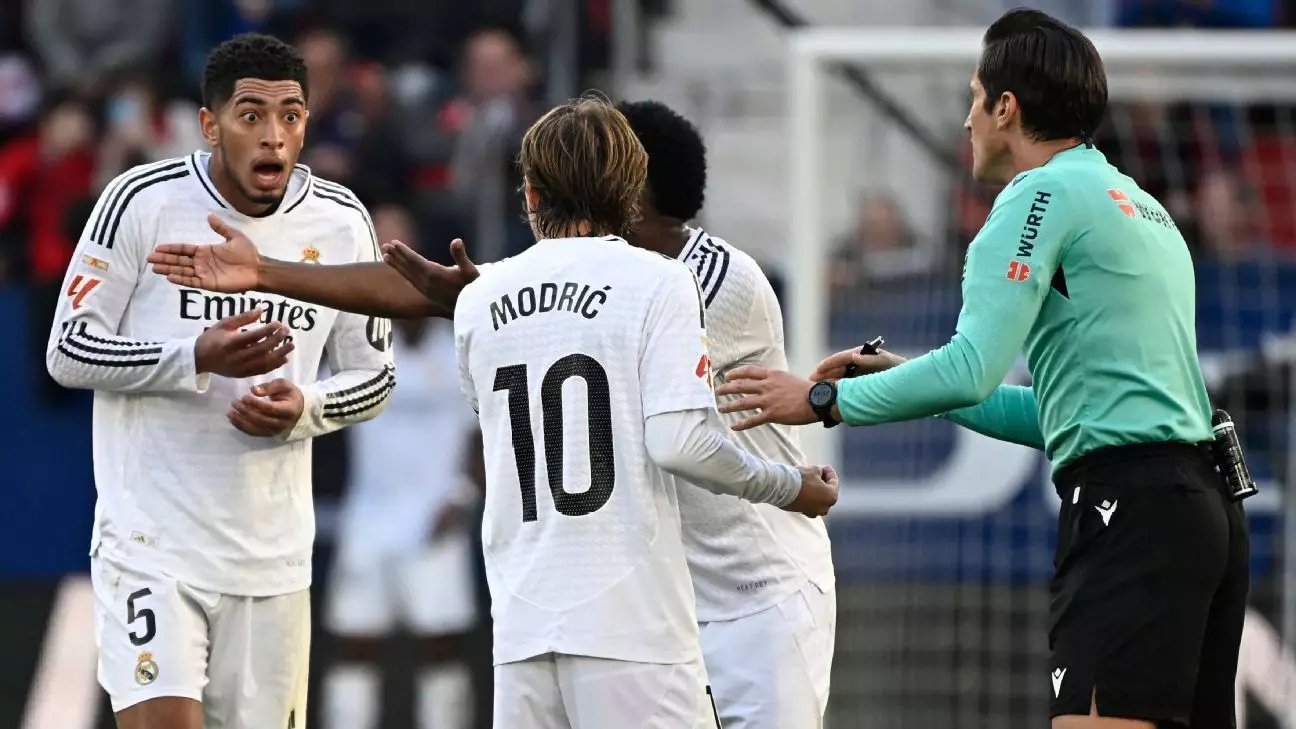In a dramatic turn of events during Real Madrid’s recent clash against Osasuna, midfielder Jude Bellingham found himself at the center of a contentious red card controversy. The game took place on Saturday, a tight contest where Madrid’s favorable position took a hit in the 40th minute. Bellingham’s dismissal came after he appeared to express his frustration regarding a refereeing decision, leading to an immediate reaction from the official, José Luis Munuera. This unexpected turn raised questions not only about the officiating standards but also the inherent communication barriers that can impact high-stakes matches in professional football.
In the post-match reflections, Bellingham voiced his disbelief regarding the referee’s interpretation of the situation. He indicated that a miscommunication had led to his unexpected departure from the game. “It’s clear that he made a mistake, there was a miscommunication,” stated Bellingham. He reiterated his understanding of the incident and the recording of the conversation, which he believed contradicted the official report. This assertion highlights a critical issue; the reliance on subjective interpretation in crucial moments can significantly alter the course of a game.
Coach Carlo Ancelotti, too, sided with his player, arguing for a reassessment of the incident. He emphasized that Bellingham’s expression of frustration, specifically the choice of words, which seemed to be misunderstood due to language differences, contributed to the misunderstanding that led to the red card. Ancelotti’s assertion that “he [the referee] didn’t understand English well,” underscores how vital communication is in facilitating a seamless flow during matches.
The consequences of this incident extend beyond just Bellingham’s individual performance; the team dynamics were undeniably impacted by playing with ten men subsequently. Ancelotti’s decision to defend his player speaks volumes about the trust and support within the squad. As Bellingham articulated, the onus lies on ensuring clarity in communication to prevent such incidents in the future—something that could reshape how referees approach potentially volatile exchanges on the field.
Addressing the aftermath of the game’s outcome, Madrid’s 1-1 draw, largely influenced by Ante Budimir’s equalizer from the penalty spot in the second half, revealed layers of complexity surrounding rules and enforcement. The draw left the team feeling somewhat robbed of a victory. Bellingham stated, “We can’t change the result of this game but I’d like to think that going forward there will be a change.” This indeed raises an important point about the necessity for referees to review footage in situations that could mar the integrity of the competition.
Bellingham’s incident shines a spotlight on the larger picture—how refereeing standards can impact the outcome of matches. From this episode, it is clear that communication is essential in a high-pressure environment. Not only should there be better communication between players and referees, but there should also be mechanisms in place to review contentious decisions and their repercussions more systematically.
While Bellingham faced unjust consequences for what can be argued as a simple miscommunication, the situation serves as a catalyst for discussions on reforming officiating protocols in football. As the sport continues to evolve, it is imperative that all parties involved, from players to officials, engage in earnest dialogue to enhance the fairness and clarity of the game.
